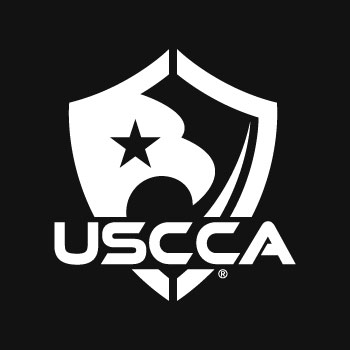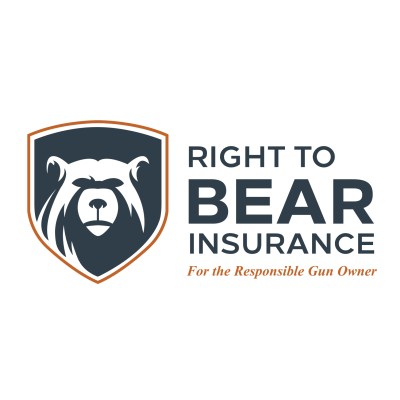
Concealed carry insurance has become increasingly popular among firearm owners who want protection in the event they are forced to use their weapon in self-defense. These insurance plans offer coverage for legal expenses, civil liability, and other related costs that may arise after a self-defense incident. In this article, we will compare and contrast four prominent concealed carry insurance providers: USCCA, CCW Safe, US Law Shield, and Right to Bear. Each company has its own unique offerings, benefits, and drawbacks, making it crucial for gun owners to thoroughly understand their options before choosing a plan.
- USCCA (United States Concealed Carry Association)
Overview: The United States Concealed Carry Association (USCCA) is a well-known and widely recognized organization that provides not only concealed carry insurance but also training, education, and community support for responsible gun owners. Founded in 2003, the USCCA has established itself as a leader in the industry, boasting a membership base that spans the entire country.

Pros: a. Comprehensive Training: USCCA offers extensive training resources, including online courses, live training events, and a vast library of educational materials. This commitment to education sets USCCA apart from other insurance providers. b. Wide Range of Coverage: USCCA’s insurance coverage includes both criminal and civil defense, as well as immediate assistance in the aftermath of a self-defense incident. c. Legal Protection: Members have access to a network of experienced attorneys who specialize in self-defense cases, providing valuable legal representation. d. Community Support: USCCA fosters a sense of community among its members, offering forums, blogs, and events where gun owners can share experiences and learn from each other.
Cons: a. Premium Costs: USCCA’s premium costs may be higher compared to some competitors, potentially making it less accessible to budget-conscious gun owners. b. State Variability: Coverage details and benefits may vary based on the state of residence, which could be a concern for individuals living in different states.
- CCW Safe
Overview: CCW Safe is a relatively newer player in the concealed carry insurance industry, but it has gained popularity for its commitment to comprehensive coverage and top-notch legal defense support. Founded in 2013, CCW Safe focuses on providing assistance to members before, during, and after a self-defense incident.

Pros: a. Unlimited Civil and Criminal Defense: CCW Safe distinguishes itself by offering unlimited coverage for both civil and criminal defense costs, providing members with peace of mind in the face of potential financial burdens. b. No Upfront Attorney Fees: Members are not required to pay any upfront attorney fees, as CCW Safe covers these costs directly. c. Psychological Support: CCW Safe goes beyond legal support by offering psychological counseling services to members involved in a self-defense incident, recognizing the emotional toll such situations can take.
Cons: a. Limited Training Resources: While CCW Safe does provide some training resources, it may not offer the same level of comprehensive education as USCCA. b. Premium Costs: Similar to USCCA, CCW Safe’s premium costs may be higher than some competitors, potentially making it less accessible to individuals on a tight budget.
- US Law Shield
Overview: US Law Shield is a prominent concealed carry insurance provider that focuses exclusively on legal defense coverage. Established in 2009, this organization operates in a unique manner by partnering with a network of attorneys to offer legal support to its members.

Pros: a. Network of Attorneys: US Law Shield’s approach involves providing access to a network of experienced attorneys who specialize in self-defense cases, ensuring that members receive legal representation tailored to their specific needs. b. Affordable Pricing: US Law Shield is often praised for its competitive pricing, making it an attractive option for gun owners seeking legal protection without breaking the bank. c. Nationwide Coverage: US Law Shield operates in multiple states, providing coverage to a broad range of gun owners across the country.
Cons: a. Limited Non-Legal Benefits: While US Law Shield excels in legal defense coverage, it may lack the additional non-legal benefits offered by competitors, such as training resources or community support. b. Variable State Coverage: Similar to other providers, the level of coverage and benefits may vary based on the state of residence.
- Right to Bear
Overview: Right to Bear is a concealed carry insurance provider that positions itself as a straightforward and affordable option for gun owners. Although it may not be as widely recognized as some of its competitors, Right to Bear aims to provide essential coverage for legal defense in the aftermath of a self-defense incident.

Pros: a. Affordability: Right to Bear stands out for its competitive and affordable pricing, making it an appealing option for budget-conscious gun owners. b. No Annual Limits: Right to Bear offers coverage without annual limits, ensuring that members have continuous protection regardless of the number of incidents they may face within a given year.
Cons: a. Limited Additional Benefits: Right to Bear may lack some of the additional benefits provided by competitors, such as comprehensive training resources or psychological support. b. Limited Track Record: As a relatively newer player in the industry, Right to Bear may not have the same established track record and reputation as more seasoned providers.
Why Concealed Carry Insurance?
Concealed carry insurance is designed to address the legal and financial implications that may arise from using a firearm in self-defense. While the Second Amendment grants individuals the right to bear arms, the legal aftermath of a self-defense incident can be complex and costly. Here are several reasons why individuals may choose to invest in concealed carry insurance:
-
Legal Protection: The legal process following a self-defense incident can be lengthy, complicated, and expensive. Concealed carry insurance provides coverage for legal fees, ensuring that individuals have access to experienced attorneys who specialize in self-defense cases.
-
Financial Security: Legal defense costs, including attorney fees, court fees, and other related expenses, can quickly accumulate. Concealed carry insurance helps mitigate the financial burden by covering these costs, preventing individuals from facing financial ruin as a result of a self-defense incident.
-
Comprehensive Coverage: Many concealed carry insurance plans offer coverage for both criminal and civil defense, ensuring that individuals are protected on multiple fronts. This comprehensive approach addresses the potential legal ramifications from all angles.
-
Immediate Assistance: In the aftermath of a self-defense incident, individuals may need immediate support. Concealed carry insurance providers often offer 24/7 hotlines or emergency response teams to assist members in the critical moments following an incident.
-
Peace of Mind: Knowing that there is a financial and legal safety net in place can provide gun owners with peace of mind. This assurance allows individuals to focus on their personal safety and the safety of their loved ones without constantly worrying about the potential legal consequences.
Choosing the right concealed carry insurance plan is a significant decision for gun owners who prioritize self-defense and personal safety. Each of the four companies discussed—USCCA, CCW Safe, US Law Shield, and Right to Bear—offers unique features, benefits, and drawbacks. The decision ultimately depends on individual preferences, priorities, and budget constraints.
Regardless of who you decide to go with…Go with someone!







